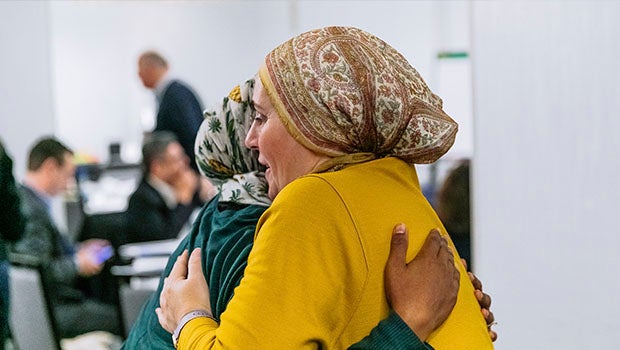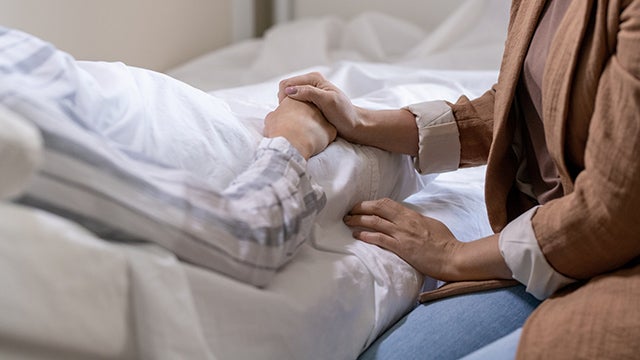Until about two weeks ago, I never heard many stories about religion on the news. Those that existed were often on the slightly skeptical or even snide side.
Lately though, there’s a story (or two, or three) almost every day on different local and national programs. Yes, it is the time of Passover, Easter, and Ramadan. But it’s more than that. Americans used to consider religion a “private” matter: Too emotional, too controversial, too studded by the minefields of the culture wars and personal and collective hurts to discuss openly. Maybe the producers thought it “private” or even backward—worth discussing as context to some other story, but not for itself.
But something about this pandemic has made us think more about what communities of faith offer to their own congregants, but also to their neighbors. It’s a turn toward thinking about religion as a “public” matter.
I heard a story the other day on Mormons, who often have significant stockpiles of food and supplies as part of their ethos of self-reliance, sharing those stockpiles with neighbors down the street who can’t get to the store for fear of the virus. Yesterday it was a story about cooking for Passover when you can’t even get chicken for matzo ball soup at the store.
The first story evokes all the best of what faith communities offer us as congregants, as neighbors, as ministers to each other, when our faith calls us to action for the good of another. This action of sharing with neighbors is not limited to people of faith, but it is impossible to deny that religious traditions bring strong scriptural and cultural lessons to do just that. It’s not really surprising to see and hear so many stories about religious communities caring for their neighbors—especially when neighbors everywhere are in deep need.
In the words of Robert Putnam, whom we’ve been quoting for years here at the Inclusive America Project, faith communities are the largest store of social capital that this nation has. We often have to call up that phrase when explaining our work supporting American religious pluralism to those who would listen approvingly to the skeptical and the snide news stories about religion and religious views. Religious communities support not just their own well-being, they weave so much of the fabric of American civic life with their volunteering, voting, and personal charity. It is goodwill in action and it is definitely “public.”
But the story on cooking for Passover was just one of many, lately, on how religious communities and people of faith are celebrating and worshipping in this particular moment. Why the deep interest all of a sudden if it was not newsworthy before? Personally, I see it as a recognition of the fact that the public goods of faith communities are deeply tied to the faiths themselves, in all their tradition and community. The fact that matzo ball soup means something to those who make it at this time of year, that the particular taste of that soup connects people to their ancestors and to the scripture that contains the instruction to help neighbors in need. This sudden uptick of stories about religious communities is the recognition that the “private” devotions and in-community connections are what lead to the “public” work of what such communities offer to the common good. It’s a recognition of that goodwill, and I hope it will lead to greater support for religious pluralism in the long run.


